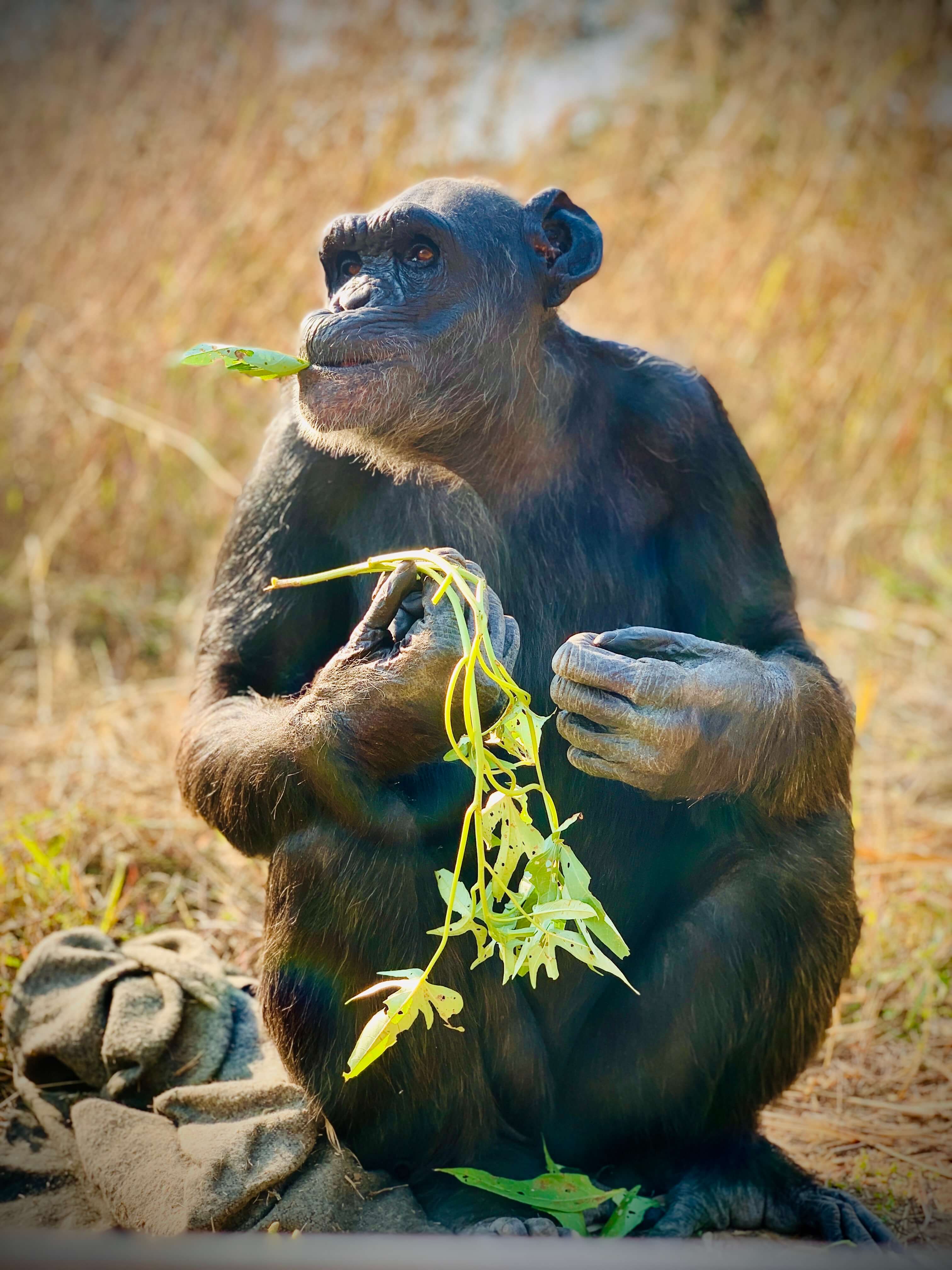The Sanctuary
Chimfunshi Wildlife Orphanage is one of the largest chimpanzee reserves in the world and is internationally recognised as such. Chimfunshi is home to over 145 chimpanzees, most of them living in 8 large forested enclosures, and as close to their natural environment as possible.
The GPS co-ordinates of the sanctuary are: S12° 21.924‘ E027° 28.912‘
The chimpanzees at Chimfunshi live in large, enclosed, open forested area within the natural Miombo woodland – each of an area up to 121.5Ha (300 acres).
Each enclosure includes an indoor handling facility with several areas, which are used for supplementary feeding of the chimpanzees; for social integration, health observations and for urgent medical care if required.
The majority of Chimfunshi’s chimpanzees spend most of their time outside in the forest and sleep in ‘nests’ in the trees as they would in the wild. They are generally only in the indoor handling facilities for approximately 90 minutes of their day to ensure their health and wellbeing.


